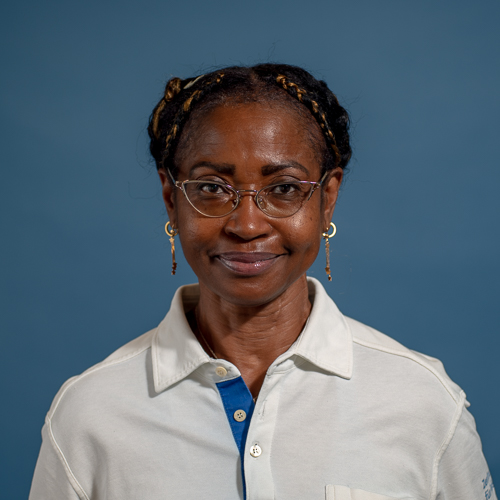We were ready and willing to help!
We were ready and willing to help!
There is no denying that the COVID-19 pandemic caused by the SARS-CoV-2 virus has affected our personal and professional lives in ways we could not have imagined before. Who knew that we would one day live in a world where embracing family and friends would be inadvisable? But that was our reality at the beginning of 2020!
It became clear very quickly that COVID-19 was not to be trifled with, as the number of people infected and the mortality rate increased daily. In China, where the virus first appeared, two facts were obvious: 1) the virus is deadly even to young and healthy people, and 2) drastic measures such as locking down and thoroughly disinfecting an entire city were needed to eradicate the virus or at least contain its spread. The rest of the world followed the events in China with bated breath. But like goods from China being transported to every corner of the world, so it was with the SARS-CoV-2 virus. It was spreading around the world.
Ready for action
The events at the Institute of Epidemiology, Biostatistics, and Preventive Medicine (EPBI) where I work as a nurse practitioner mirrored what was seen in many public health settings: These institutions have been challenged to expand their daily missions and take a leadership role in the fight against coronavirus. According to the EBPI's director, Prof. Jan Fehr, M.D., the EBPI was ready for action because of its long experience with travel clinic vaccination and counseling services and through epidemiological and preventive medicine research.
Restructure facility
The living and working conditions at EBPI then changed quickly. Immediate challenges included building the infrastructure to handle the influx of people for Corona testing and providing the additional staff. The EBPI needed to provide testing for at least 300 people daily. IT staff quickly set up a computer network to register test takers and enter their medical histories and laboratory test results. The reports from the Federal Office of Public Health (FOPH) on the number of COVID-19 infections provided the planning team with the data for further work: If the number of cases in the canton of Zurich increased, the center had to react quickly in each case and adapt its infrastructure to meet the demand for more COVID-19 tests. The EBPI testing center relieved the burden on hospitals by identifying those who tested positive early and encouraging them to stay at home to contain the spread.
Putting fears aside
Of course, we of the staff had concerns, especially at the beginning, about close contact with people who might have been carriers of the coronavirus. The group of epidemiologists, female physicians, researchers, nurses, medical assistants, and administrators was augmented by medical students and other health care personnel. All were willing to put aside their fears and followed their sense of duty. We used scientific data on the transmission route of the SARS-CoV-2 virus to make the best use of personal protective equipment (PPE). Appropriate PPE and FOPH hygiene measures were essential to protect both staff and those being tested.
In-house freezers
As the pandemic progressed, the EBPI was tasked with managing the second phase of the Corona pandemic, i.e., the introduction of the COVID-19 vaccination program in the canton of Zurich. The great excitement that accompanied the news of a vaccine against the SARS-CoV-2 virus and a possible end to the pandemic was overshadowed by the logistical nightmare associated with Pfizer/BioNTech's COVID-19 vaccine. The vaccine had to be stored in freezers at minus eighty degrees Celsius and required special handling to prevent destruction of the mRNA spike protein antigen.
Fortunately, the EBPI had in-house freezers to coordinate vaccine logistics with the cantonal pharmacy in Zurich. As a result, EBPI established itself as the reference vaccination center for the canton of Zurich for the planning and implementation of the mass vaccination of the Zurich population, which began in January 2021.
Good orchestrated teamwork
The culmination of events leading to the delivery of the first dose of Pfizer-BioNTech's COVID-19 vaccine to the first Zurich residents was a well-orchestrated team effort. Once again, the infrastructure was adapted to the new challenge, this time first to handle the influx of people in Group 1 (80 years and older), but also to provide additional workspace for healthcare professionals to deliver vaccinations. At this stage, it was important to establish standard workloads for staff to avoid chaos.
Honor and baked goods
We employees are a multicultural and multidisciplinary team. They include physicians and retired nurses, medical students, civil servants and administrators. Dr. Tom Walker, retired physician and current director of emergency services at the Immunization Center, said, "I am honored to serve Zurich residents again in this capacity. I worked in a hospital emergency department for many years, so this is my life's work." The gratitude and relief of those willing to be vaccinated made the arduous task of countless vaccinations and the severity of the COVID-19 pandemic seem surreal for a moment. The sincere appreciation was palpable: employees were delighted not only to receive kind words, but also numerous gifts of baked goods and chocolates.
Ready for the booster shot
In essence, the COVID-19 pandemic has had many sad consequences in healthcare in recent years. But the story of what happened at EBPI is one of human compassion and cohesion in the fight against the spread of COVID-19. Although many of the staff members were only temporary at the center, each contributed to the experience that will always be in my memory. The work is far from over, with the focus on rapid identification of new variants, continuation of the vaccination campaign, the need for booster vaccinations for the immunocompromised, and the threat of a fourth wave of the pandemic.

